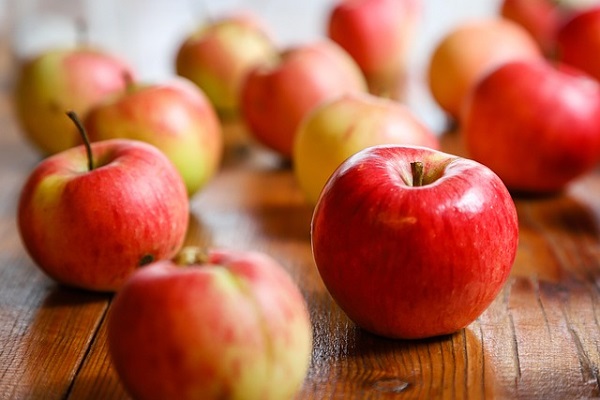 Credit: Pixabay
Credit: Pixabay
Luxembourg's Ministry of Agriculture, Food and Viticulture has launched a call for tenders for the 2025/2026 edition of the "Schouluebstprogramm" (school fruit programme) via the public procurement portal, inviting agricultural producers and distributors to participate.
Submissions are open until Monday 1 September 2025.
Now in its seventeenth year, Luxembourg's participation in the EU School Fruit and Vegetables Scheme aims to increase fruit and vegetable consumption among students and raise awareness among young people of the value of agricultural products. The programme benefits 98% of primary and secondary school students nationwide.
The 2025/2026 tender covers seven lots: five for local agricultural producers (small producers may join forces to submit a bid) and two for distributors, who will supply the remaining fruit and vegetables needed for the programme and handle logistics to deliver the produce to 417 school sites.
Among fruits and vegetables grown in Luxembourg, apples, pears and carrots are considered ideally suited for school distribution. Given the sufficient national supply of local apples, pears and carrots, their quantity will be increased by 4% to more than 156 tonnes - representing 33.96% of all produce distributed under the scheme.
A third (32%) of all products distributed will be organic, in line with local organic production capacities. More specifically: all local carrots must be organic, as organic production is deemed sufficiently developed to provide the necessary quantity and quality; to be consistent with the government's social and development aid objectives, all bananas must be organic and fair trade; at least 10% of the remaining produce supplied by distributors must be organic.
The ministry emphasised that while organic products represent at least one-third of all produce distributed, a significant increase beyond this share could be counterproductive, as it would likely involve greater reliance on imported organic produce, reducing the value placed on local production.
There is also an educational component to the programme. Participating local producers must commit to hosting school classes on their farms. The objective is to raise awareness among young people about healthy, local eating.
The ministry's Administration of Technical Agricultural Services (ASTA) centralises the programme's organisation, with distributors responsible for delivering the produce to all primary and secondary schools - thus freeing schools from most administrative procedures.
The ministry noted that the share of regional fruit and vegetables has increased significantly in recent years and now accounts for about a third of the produce distributed. It encouraged local producers to participate in this market. The ministry added that limiting the tender to seven lots reduces the administrative burden of supplier management and controls, which are mandatory in this European programme.
The authorities also noted that the school fruit programme, which operates on annual contracts, is not intended as a preferred means of launching new sustainable fruit production.
Moreover, all fruits and vegetables - whether organic or conventionally grown - are regularly inspected by the Luxembourg Veterinary and Food Administration (ALVA). The results show they are healthy and safe to eat.
The "Schouluebstprogramm" is co-financed by the European Union and the Luxembourg State and its implementation is subject to EU public procurement rules. To benefit from European aid, Luxembourg must respect reasonable spending rules, with the price factor accounting for at least 50% of the criteria for awarding lots.
Key figures
- 98% of primary and secondary school students benefit from the programme
- 417 school sites are supplied weekly
- Over 461 tonnes of quality fruit and vegetables, including 156 tonnes of local produce, are distributed annually
- 33.96% of the distributed produce comes from local producers
- 32% of the distributed produce is organic, including 100% organic local carrots and 100% organic and Fairtrade bananas
- 382 primary pupils participated in school visits to local fruit and vegetable growers in 2024/2025








